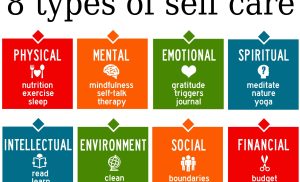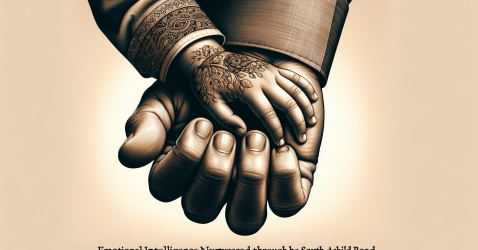The Art Of Saying No: Self-Care Through Boundaries
In today’s fast-paced and demanding world, it can often feel overwhelming to always say yes and meet everyone’s expectations. That’s why it’s essential to master the art of saying no and set healthy boundaries. By learning how to confidently decline requests or commitments that don’t align with your priorities or values, you can prioritize self-care and ensure your own well-being. In this article, we will explore the importance of saying no, the benefits it brings, and strategies to effectively communicate your boundaries while maintaining healthy relationships. So, get ready to empower yourself by embracing the art of saying no and discover how it can positively transform your life.
Importance of Setting Boundaries
Setting boundaries is essential for maintaining your overall well-being and ensuring that your needs are met. By clearly defining your personal needs and limits, you establish a framework that allows you to navigate through life with control and balance. Recognizing and respecting your limitations is a crucial aspect of self-care and preserving your emotional and mental health. Without boundaries in place, you may find yourself feeling overwhelmed, overburdened, and drained.
Identifying personal needs and limits
To effectively set boundaries, it is vital to first identify your personal needs and limits. Take some time to reflect on what is important to you and what makes you feel safe, comfortable, and valued. Consider your emotional, physical, and mental well-being. What activities or behaviors do you find draining or harmful? What are your non-negotiables in relationships, work, and other areas of your life? By acknowledging and understanding your needs, you can communicate them more effectively and advocate for yourself.
Maintaining emotional well-being
One of the key reasons for setting boundaries is to protect your emotional well-being. Without clear boundaries, others may intrude upon your emotional space, leaving you feeling overwhelmed and drained. By establishing limits on the types of interactions you are comfortable with, you can ensure that your emotions are respected and that you have the space to process and heal. It is essential to recognize that your emotional health is a priority and that setting boundaries is an act of self-care that promotes emotional well-being.
Protecting time and energy
Your time and energy are valuable resources, and setting boundaries helps you protect and preserve them. When you say no to commitments or activities that drain your time and energy, you free up space to focus on the things that truly matter to you. Setting priorities and being intentional about how you allocate your time and energy allows you to pursue your passions, nurture your relationships, and take care of yourself. By setting boundaries, you create space for personal growth and fulfillment.
Understanding the Fear of Saying No
Many individuals struggle with saying no due to various fears and concerns. Understanding these fears can help you overcome them and develop healthier boundary-setting habits.
Fear of disappointing others
The fear of disappointing others is a common obstacle when it comes to setting boundaries. You may worry about how others will react or how they will perceive you if you prioritize your needs over their requests. Remember that saying no is not a reflection of your worth or value as a person. It is crucial to prioritize your own well-being and recognize that you cannot please everyone all the time. Remind yourself that it is okay to say no and that your boundaries are necessary for your own happiness and fulfillment.
Fear of conflict
Conflict can be uncomfortable, and the fear of confrontation often prevents individuals from setting boundaries. However, avoiding conflict by not asserting your needs can lead to resentment and dissatisfaction. It is important to remember that conflict is a natural part of life and healthy relationships. Communicating your boundaries openly and honestly can actually strengthen relationships by fostering understanding and respect. Embrace the discomfort of conflict as an opportunity for growth and positive change.
Fear of being judged
The fear of being judged or rejected is another common fear that hinders boundary-setting. You may worry about how others will perceive you or fear being seen as selfish or difficult. However, it is important to prioritize your own well-being and trust that the people who truly care about you will understand and respect your boundaries. Remember that setting boundaries is an act of self-respect, and you have the right to establish limits that align with your values and needs.
Benefits of Saying No
While saying no may sometimes feel uncomfortable, it brings a multitude of benefits that can enhance your overall well-being and quality of life.
Reducing stress and overwhelm
Saying no allows you to manage your commitments and obligations effectively, reducing stress and overwhelm. When you take on too much and neglect your own needs, you become susceptible to burnout and exhaustion. By setting boundaries and saying no when necessary, you create breathing room and give yourself the opportunity to prioritize self-care. This leads to reduced stress levels and a greater sense of peace and balance in your life.
Increasing self-confidence and self-esteem
As you assert your needs and set boundaries, you cultivate a sense of self-confidence and self-esteem. The more you practice saying no and prioritizing your needs, the more you demonstrate self-respect and self-worth. This builds a positive self-image and reinforces the belief that your needs and desires are valid. Each boundary you establish and maintain boosts your self-confidence, empowering you to navigate life with assertiveness and authenticity.
Improving relationships
Setting boundaries not only benefits you but also improves your relationships with others. Healthy boundaries create a sense of respect and mutual understanding within relationships. By clearly communicating your needs and limits, you allow others to understand your expectations and respect your boundaries. This fosters healthier and more fulfilling connections, as everyone’s needs are acknowledged and respected. Boundaries encourage open and honest communication, creating a foundation of trust and strengthening your relationships.
Developing Assertiveness Skills
Developing assertiveness skills is crucial for effective boundary-setting. Assertiveness allows you to express your preferences, needs, and limits in a clear and respectful manner.
Identifying and expressing preferences
To set boundaries assertively, start by identifying your preferences and needs in various situations. Take the time to understand what you are comfortable with and what you are not. Once you have a clear understanding, practice expressing these preferences confidently and assertively. Use “I” statements to communicate your needs and express yourself in a way that is clear, respectful, and non-confrontational. Remember that your feelings and desires are valid and deserving of attention.
Using effective communication techniques
Effective communication is essential for asserting boundaries. Be mindful of your tone and body language, ensuring that your delivery aligns with the message you want to convey. Use active listening skills to understand others’ perspectives and foster understanding. When setting boundaries, be direct, specific, and concise. Avoid excessive apologies or lengthy explanations. Clear and direct communication leaves little room for misinterpretation and promotes mutual respect.
Practicing saying no assertively
Saying no assertively is a skill that can be developed with practice. Start by acknowledging that saying no is a valid and necessary response in certain situations. Practice saying no assertively in low-stake scenarios to build your confidence. Remember to communicate your boundaries clearly, providing a brief explanation if necessary, and reaffirming your commitment to self-care and well-being. Over time, saying no assertively will become more comfortable and natural.
Learning to Prioritize Self-Care
Prioritizing self-care is crucial for maintaining balance and well-being. By allocating time and energy to activities that promote well-being, you replenish your internal resources and increase your capacity for setting and maintaining boundaries.
Recognizing the importance of self-care
Self-care involves actively engaging in activities that promote your physical, emotional, and mental well-being. It is important to recognize that taking care of yourself is not selfish but essential. By prioritizing self-care, you provide yourself with the necessary foundation to set and maintain boundaries effectively. Understand that self-care looks different for everyone, so identify activities that bring you joy, relaxation, and fulfillment.
Identifying activities that promote well-being
Take the time to reflect on activities that nourish and replenish your well-being. These can include physical exercise, engaging in hobbies, spending time with loved ones, practicing mindfulness and meditation, seeking therapy or counseling, or simply having quality alone time. Experiment with different activities to discover what works best for you and be intentional about incorporating them into your routine. Setting aside time for self-care sends a message that your well-being is a priority.
Creating a self-care routine
Establishing a self-care routine helps ensure that self-care is consistently prioritized in your life. Designate specific times or days for activities that promote your well-being and stick to them. Incorporate self-care practices into your daily, weekly, and monthly routines. Experiment with planning and time management techniques to create a balance between obligations and self-care. Be flexible and open to adjusting your routine as needed. By making self-care a regular part of your life, you reinforce the importance of setting boundaries and taking care of yourself.
Setting Clear Personal Boundaries
Setting clear personal boundaries is critical for establishing healthy and respectful relationships. It involves determining your personal values and principles and effectively communicating your boundaries to others.
Determining personal values and principles
To set clear personal boundaries, it is important to understand and identify your personal values and principles. Reflect on what is important to you, what you stand for, and what you are willing to accept or tolerate in your relationships and interactions. Envision the kind of life you want to lead and the type of relationships that align with your values. These values and principles will serve as a compass for setting and enforcing your boundaries.
Communicating boundaries effectively
Communication is key when it comes to setting boundaries. Clearly and assertively communicate your boundaries to others, explaining what behaviors or actions you cannot accept. Use “I” statements to express your needs and explain how certain actions affect you. Be direct and specific, leaving no room for misinterpretation. Reinforce the importance of your boundaries and emphasize that they are non-negotiable. Effective communication ensures that your boundaries are understood and respected.
Enforcing boundaries with consequences
Enforcing boundaries often requires following through with consequences if they are violated. Communicate the consequences of crossing your boundaries clearly and consistently. Establish consequences that align with the severity of the boundary violation and enforce them when necessary. Consistency is key to establishing and maintaining boundaries. Remember that enforcing boundaries with consequences is not meant to punish but to protect your well-being and maintain the integrity of your boundaries.
Handling Guilt and Other Emotional Reactions
When setting boundaries, it is common to experience guilt and other emotional reactions. Understanding and managing these emotions is crucial for maintaining your boundaries effectively.
Understanding the role of guilt in boundary-setting
Guilt often arises when you prioritize your needs and say no to others. It is important to understand that guilt is a normal emotional response, but it does not always indicate that you have done something wrong. Recognize that guilt can arise from societal expectations and the fear of disappointing others. Challenge the irrational belief that setting boundaries is selfish or harmful. Reframe guilt as a signal that you are prioritizing your well-being and affirm the importance of your boundaries.
Managing guilt through self-compassion
Practice self-compassion to manage feelings of guilt and other emotional reactions. Remind yourself that it is okay to prioritize your needs and that your boundaries are essential for your well-being. Treat yourself with kindness and understanding, just as you would a close friend. Offer yourself words of encouragement and reassurance. Practice self-care and engage in activities that bring you joy and relaxation. Cultivating self-compassion helps alleviate guilt and strengthens your commitment to maintaining your boundaries.
Seeking support from loved ones or professionals
Seeking support from loved ones or professionals can be beneficial when facing emotional reactions and challenges with boundary-setting. Reach out to trusted friends, family members, or therapists who can provide guidance, encouragement, and reassurance. Share your experiences, fears, and victories with them. Having a support system can help validate your feelings and provide valuable insights into maintaining boundaries effectively. Remember, you don’t have to go through the process alone.
Saying No in Different Areas of Life
Saying no is applicable across various areas of life, including work, family and relationships, and social commitments. Each area presents unique challenges and opportunities for boundary-setting.
Work and career
Setting boundaries in the workplace is crucial to maintain a healthy work-life balance and avoid burnout. Clearly define your working hours, expectations, and workload. Communicate your limits and prioritize tasks based on importance and feasibility. Say no to additional responsibilities or projects when you are at capacity. Remember that your well-being and mental health are equally important as professional success.
Family and relationships
Setting boundaries with family and in personal relationships is essential for healthy dynamics. Clearly communicate your values, needs, and expectations to your loved ones. Say no to behaviors or requests that infringe upon your well-being or violate your boundaries. Establish healthy communication patterns and encourage open dialogue. Remember, setting boundaries does not mean you love someone any less; it means you love yourself enough to prioritize your needs.
Social commitments
Social commitments can often lead to overextending yourself and sacrificing your well-being. Assess invitations and consider whether they align with your priorities and values. Say no to events, gatherings, or activities that do not bring you joy or align with your energy levels. Set limits on the number of social commitments you accept to avoid overwhelm. Remember that your social well-being includes spending quality time with yourself, so prioritize alone time if needed.
Dealing with Pushback and Resistance
When you start setting boundaries, you may encounter pushback and resistance from others. Handling these situations requires assertiveness and maintaining your boundaries firmly.
Responding to manipulation and guilt-tripping
Some individuals may manipulate or guilt-trip you in an attempt to override your boundaries. Stay firm in your boundaries and recognize manipulative tactics when they arise. Refuse to engage in arguments or debates about the validity of your boundaries. Reiterate your needs and assert that your boundaries are non-negotiable. Remember that you have the right to protect your well-being and that manipulation tactics should not dictate your boundaries.
Handling conflict and negotiation
Conflict and negotiation can arise when setting boundaries, especially with individuals who are accustomed to crossing them. Approach conflicts calmly and assertively, acknowledging the other person’s perspective while affirming your needs. Seek common ground or compromise where appropriate, but stay firm on non-negotiable boundaries. Maintain open lines of communication and listen actively. Handling conflict and negotiation effectively allows for healthy compromise while still maintaining your boundaries.
Maintaining boundaries in the face of resistance
Maintaining boundaries in the face of resistance is essential for upholding their integrity. Stay committed to your boundaries and continue to communicate them clearly and consistently. Develop strategies to cope with resistance, such as reminding yourself of the importance of your boundaries, seeking support from loved ones or professionals, and practicing self-care to reinforce your resilience. Remember that your boundaries are vital for your well-being, and you have the right to maintain them.
Embarking on the Journey of Boundary-Setting
Embarking on the journey of boundary-setting is a transformative process that requires reflection, realistic expectations, and celebration of progress.
Reflecting on past experiences
Take time to reflect on past experiences where boundaries were crossed or neglected. Understand the impact these experiences have had on your well-being and use them as motivation for setting healthier boundaries. Reflect on what you have learned from these experiences and how you can apply that knowledge moving forward. This reflection will help you establish a strong foundation for boundary-setting.
Setting realistic expectations
Setting boundaries is a journey, and it is important to set realistic expectations for yourself. Understand that boundary-setting is a process and that change takes time. Do not expect perfection, and be kind to yourself throughout the journey. Take one step at a time, celebrating small victories along the way. Remember that each time you assert your boundaries, you are prioritizing your well-being and growth.
Celebrating small victories
Celebrate the progress you make in setting and maintaining boundaries, no matter how small. Recognize each instance where you assert yourself and prioritize your needs. Acknowledge the positive impact that boundaries have on your well-being and relationships. Celebrating these victories reinforces the importance of boundary-setting and encourages you to continue prioritizing yourself.
In conclusion, setting boundaries is an essential aspect of self-care and overall well-being. By identifying your personal needs and limits, understanding and overcoming the fear of saying no, and developing assertiveness skills, you can effectively set boundaries to protect your time, energy, and emotional well-being. Prioritizing self-care, establishing clear personal boundaries, and handling emotional reactions or resistance are crucial for maintaining healthy relationships and navigating different areas of life. Embarking on the journey of boundary-setting requires reflection, realistic expectations, and celebrating small victories. Remember that asserting your needs and setting boundaries is a transformative process that ultimately leads to a life of balance, authenticity, and fulfillment. So embrace the art of saying no and prioritize your well-being through boundaries.

















